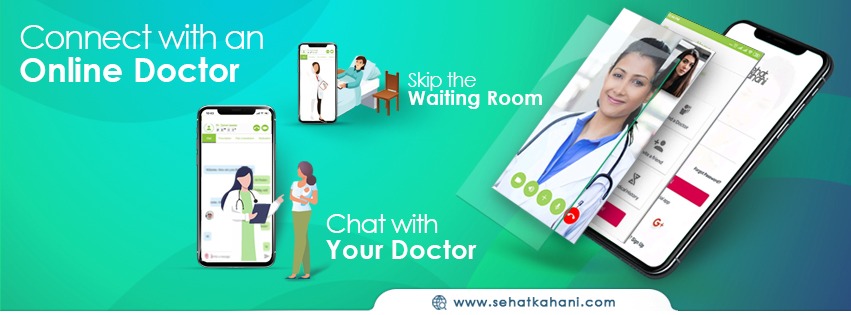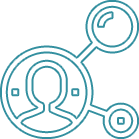In this latest series of articles, we are publishing interviews of women who are working as a professional or a student in the technology sector. The objective is to highlight their work and contribution to the industry as well as to the community.
In these interviews, you will find women working in technology to solve real-world problems, to break stereotypes and to create the next big impact on the tech industry. This series of interviews shows that even with the lowest rate of women participation in the labor market in Pakistan, there are still lots of smart women who are creating and using technology to work wonders.
Today, we are featuring Dr Sara Khurram. Read on to know more about her work and get inspired.

Tell us a little about yourself, your background, your education, and your work.
I come from a middle-class family. My father was a police officer, and my mother is a homemaker. Even with narrow cash flows, but parents always prioritised our education above their luxuries. My parents always treated me equal if not more to two older brothers that have given me the confidence for life that I am no lesser than any man. I have graduated from dow medical university in 2010 and completed my Masters in Health Policy and Management in 2019. The concept of “Doctor Brides” is close to my heart as I have seen many of my competent friends, peers go through it. There was a time in myself where I could not work after having my firstborn. This made me understand the mental and emotional burden of not being able to live your dream that you have seen for the last 20 years- to serve humanity as a doctor. My work motivates me every day to connect female doctors back into the workforce and connect them to patients in our country who cannot access a qualified in their lifetime. I also believe that technology can be a great enabler and should play a massive role in access to services in our communities.
What are your plans/aspirations? What impact will it have on the community/society/your team/your project?
Every country that lacks access to healthcare because the shortage of doctors or a country which suffers a similar situation like the “doctor bride phenomena”, where females are not allowed to work after marriage, can adopt this solution to improve their healthcare situation.
The phenomena of doctor brides might be limited to Pakistan, but female doctors not working after marriage can be an issue of so many countries. Surprisingly, 3.5 million people globally have minimal or no access to quality health care, the majority of them belonging to low-income communities.
Our main target in 10 years would be the MENA region, Bangladesh, Nepal and Latin America where there is a crisis of access to healthcare, and females can not work either.
Pakistan, right now, is in a medical healthcare emergency where we are not doing much in SDGS hence the future of Pakistan looks very unfortunate.
We at Sehat Kahani envision to make communities adapt to our system and ensure that every Pakistani has access to healthcare using our app or a clinic. We believe that health is everyone’s right, and they should be able to access quality healthcare at all times. It is the only way through a healthy Pakistan which can economically grow at the same time.

Please brag about your career accomplishments, what are the things you are really proud of?
I have won notable awards such as the Rolex Awards 2019 as Ass. Laureate, TIAW Award, CRDF Global Awards, Ashoka Changemakers, ISIF Asia, The Unilever Sustainable Living Young Entrepreneurs Awards, The Unicef – Global Goal Campaigner Award (2016) and Arpatech Young Entrepreneurs Award 2017 for my work. I am also a Cartier Awards finalist and the first frontier Innovator from Pakistan. I am an Acumen fellow 2016, a TEDx speaker (2019), Cherie Blair Foundation alumnus and has been part of well-known accelerators such as Invest2Innovate, Frontier and the Amplify program. I have spoken at prominent places such as KSBL Conference 2016, Africa Summit 2017, AI Summit ICTN Karachi and the Mobile World Congress Barcelona 2019. I have been born and bred in Karachi. I have done my MBBS from DOW University of Health Sciences in 2010, and her Master in Health Policy and Management from The Aga Khan University of Health sciences in 2018.

What has been your best education/career decision, and why?
I recently did the ISEP course from INSEAD.It was a content-driven course for social enterprises and social entrepreneurs to understand their business, the need for impact, and the value of effects while scaling. It also elaborated on what to learn from successful and failed social enterprises in the world. It was a great learning experience and the ability to meet other social enterprise founders going through similar challenges. The faculty uses many case studies to keep the learning pattern very interactive. I will highly recommend it to all entrepreneurs solving public problems.
What’re the best lessons you’ve learned?
My biggest lesson in life has been that every problem has a solution. We just do not try enough. We assume that solution is not available instead of thinking out of the box. My second biggest lesson in life is to know your worth and develop the self-confidence to exercise it to others as well. My third most significant learning in life is to find people who love you and support you in your hard times and value the most. The fourth-biggest learning is taking a risk whenever you can instead of shying away due to fear of consequences. The fifth most significant learning is to use your time wisely and only on things that need you the most. Reduce the noise around you as much as possible.

Which woman inspires you and why?
The biggest inspiration in my life is my mother. She is a homemaker but has always pushed me to achieve my dreams. She has herself taken a lot of cultural backlash for allowing her daughter to spread her wings and live an independent career-driven life. She has made sure my children are taken care of while I work. She has travelled with new places to look after my children while I participate in events. She is my biggest cheerleader cheering my every little win. For a woman who has not worked herself, her passion for a woman to have her own identity is an inspiration for me and me to become one for my daughters as well.
Do you think Pakistan has changed as a society, in terms of accepting career-oriented women? What needs to change to help more women come forward?
While there is some change; however, I still feel the difference is very slow and gradual, and a lot needs to be done in this arena of accepting, promoting and bringing women back into the workforce. More organisations need to build women-friendly spaces giving them prayer rooms, child care rooms. We need to facilitate working mothers who want to pursue a career but are not able to because of their children, but most importantly, we need women to also stand up for themselves more and more.
What will be the biggest challenge for the generation of women behind you?
A major social hindrance is that women in our country are not permitted by their families or their spouses to go out and work. In other cases, they are not allowed to leave their households and are expected to stay at home to take care of the children and do household chores.
Since it is considered a social taboo in Pakistan, these women are unable to step out and work at workplaces or different work environments.
The other social hindrance is that the women in Pakistan are looked down upon if they leave their kids to babysitters and nannies at home. There are no formal daycares or child protection systems, and the opportunities to work are not that flexible to be able to cater to the needs of kids as well as work in one go.
The ideal solution to combat this will be to increase job opportunities for females with flexible hours as well as a provider of the nursery if need be. Hence at Sehat Kahani, have developed a system to accommodate our female staff with these facilities. We do this to create a safe and comfortable environment to work in, whether in-house or from the comfort of their homes.
How can WomenInTechPK help you and other women?
WomeninTechPK has been a fantastic platform allowing professional women techs to express themselves, provide a platform for sharing employment opportunities as well as experience sharing. WoenInTech can also create linkages and liaison with the various leading Incubators and start building a Network where budding female entrepreneurs can be provided with opportunities to be showcased nationally as well as Internationally. WemenInTech should also start a mentoring platform for women where other women leaders can become a source of inspiration and encouragement. Here we both would love to volunteer and mentor budding young talent whenever needed. Perhaps WomenInTechPK can also support in connecting them with respective investors and other sources of Funding.
You can follow Dr Sara Khurram using her profiles below, and please do not hesitate in hiring her for your next project.
Email: sara@sehatkahani.com
Website: www.sehatkahani.com
Facebook: https://www.facebook.com/Sehat-Kahani-1872899202946446/
LinkedIn: https://www.linkedin.com/in/dr-sara-saeed-khurram-9a8873aa/
Twitter: https://twitter.com/SehatKahani
ProWomen Profile: https://www.prowomen.pk/dr-sara-saeed-khurram
About Sehat Kahani:
Pakistan is a country with a population of 200 Million people were more than 75 % lack access to a qualified physician. While on the other hand, we have a large number of females who graduate as female physicians, yet due to social and cultural norms are unable to practise medicine because of social and cultural barriers. According to the statistics; out of 85,000 licenced female physicians, only 23% are registered with the PMDC let alone the ones who are practising.
Circumventing social and cultural barriers, Sehat Kahani uses virtual telemedicine and video consultation platform that allows female doctors to resume work from the comfort of their homes and provide health consultations, treatment and counselling to patients in far off and unseen communities.These female health experts can be approached via two platforms.
Establishment of affordable E-Health Clinics in low-income areas where frontline female intermediaries such as local nurses and health workers facilitate the online consultation and support mass health education drives within these communities. This e-clinics also give access to lab, ultrasound, medicines and tertiary care referral. Via its vertical of E- clinics, Sehat Kahani has established 26 E-Health clinics in three provinces in Pakistan and directly impacted 120,000 patients till date.
E-Health Mobile Application catered to middle and high-income groups who can access female health experts in just three clicks. This application, in its first phase, is provided to formal economy workers who often neglect their health care due to lack of time or income. We have piloted our services with leading corporates and 15,000 + employees with more than 300,000 employee base locked for this year which include organisations such as HBL, Bank Alfalah, Galiyat Development Authority to name a few. We are also piloting with Meezan Bank, Karachi Electric and are also looking at scaling in other Provinces as well.


